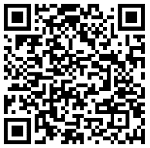Gone are the days of a secure pension after working for the same company for most of your life. Now, people have to think about retirement much more actively and either use a workplace 401(k), a ROTH IRA, or some other means of saving for retirement. While some people enjoy the control they have of making their own investment choices, it’s not for everybody, and that’s not surprising. Not only do you have to think about paying all of your expenses, but there are other things to take into consideration, such as the rising cost of healthcare, inflation, and money for things you want to do.
The Hard Facts About Health Care Costs
In the 2020 Fidelity Retiree Health Care Cost Estimate, a typical retired couple aged 65 will need about $295,000 after tax for health care costs alone. There are factors that impact this amount, such as how healthy both people are, when they retire, where they retire, and how long each person lives. Even in a best case scenario, this can be a lot of money. If you haven’t already, it’s a good idea to start planning for these costs.
Another way you can keep health care costs down during retirement is to address any health issue you have now. If you’re carrying around a few extra pounds, consider changing up your diet a bit and getting more exercise. Just remember, before you do anything, check with your doctor first. A licensed health care practitioner can tell you what would be best for your body.
Have an Emergency Fund in Place
While everyone should have an emergency fund in place, it’s even more important when you’re retired. Not only will you be on a fixed income, but there’s no working extra overtime to get more money. An emergency fund can help with unexpected costs, such as paying for car repairs, replacing old appliances, or any number of other things that can go wrong. When setting up an emergency fund, it’s important to remember a few key points:
- You should have 3-6 months of living expenses in the account
- Keep this money separate from your checking account so you don't 'dip' into it
- Keep it in an account that has no or low transaction fees and no withdrawal penalties
- The account should earn interest on the balance (even a small amount is better than none)
Tackle that Debt
When you start to live on a fixed income, the last thing you need is debt. Some people may have their mortgage paid off while others may not, but right now we’re talking about all the other consumer debt you might have. Think of unpaid personal loans, credit card debt, car loans, medical bills, or really anything you have to make payments on. The less debt you have in retirement, the better off you’ll be. If you don’t know where to start there are numerous websites that can help, but it’s just as easy to do it yourself.
Start by creating a budget. List out all of your monthly income, then list out all of your monthly payments. The amount left over is what you can throw at debt. When you create the budget, make sure to have a line item for miscellaneous items because they will pop up. Other than what you’ve listed, stick to the budget and with the extra money you have, throw it to debt as fast as you can. It’s best to pick one debt at a time to focus on because it will be easier to see your progress. Some people choose to do the smallest debt first, because it can feel like a ‘win.’ Others choose to tackle the debt with the highest interest rate. Do whichever one you’ll stick with, and don’t back down.
If your budget shows that you are in the negative each month, it’s time to do something about it. Either cut back on expenses or find ways to make more money. Now is the time to get serious about paying all the debt off. Think of it this way, would you rather do things you enjoy during retirement, or would you rather be stuck at home not able to do anything because you’re broke?
Use Retirement Tools to Your Advantage
There are websites that offer retirement tools, like calculators, that can give you a reasonable estimate of where you stand each year. Once you know what your numbers are, it can be easier to focus on what you need to do. Check back in once a year and see how you’ve improved or figure out if you need to be doing more. Knowledge is power, and the more you know, the better you’ll be able to create the perfect retirement you dream of.




